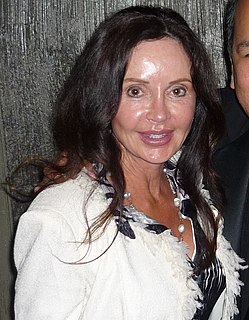A Quote by William A. Rusher
That was a general impression that one got, that she [Eleanor Roosevelt] was always flitting around the country and descending on some place in the Ozarks that she decided was disadvantaged, and announcing that something had to be done. And she had a very active social conscience, which I think in general is to her credit, although it tended, as many people thought, to just be overdone to the point where it gave rise to this crack that she regarded the whole world as one vast slum project
Quote Topics
Active
Although
Always
Announcing
Around
Conscience
Country
Crack
Credit
Decided
Descending
Disadvantaged
Done
Eleanor
Gave
General
Got
Had
Her
Impression
Just
Just Be
Many
Ozarks
People
Place
Point
Project
Regarded
Rise
Roosevelt
She
Slum
Social
Some
Something
Think
Thought
Vast
Very
Which
Whole
Whole World
World
Related Quotes
I don't think she ever had a single initiative at the United Nations that was not previously [vetted] by the people at the State Department, approved of, and authorized. She did manage to get around the world an awful lot, and find other parts of her vast slum project that needed repair. But I don't think that that was the main point. The main point was that she, after all, connoted Franklin Roosevelt, who by then was long dead, and had a certain prestige and power on that account.
I think that it is true that Eleanor Roosevelt, by being so active on that front, contributed to that impression very substantially. And it's to her credit that she was interested in this, let me say. But once again, I'm not sure the extent to which Roosevelt - I guess he did use her really, particularly on the civil rights front. No question about it, because she was well identified out there, and brought a good many blacks into the Administration, into the White House, into his presence and so on.
And during the campaign of 1936, she writes that she and her brother would always rather be out doing things when they're sick, rather than take to their beds. And I think Eleanor Roosevelt always responded to pain by doing more, by doing something, by being active. And I think she just couldn't bear to look at her childhood grief. And she didn't.
I think that, very often there's a pain that's just too painful to touch. You'll break apart. And I think her mother's death and disappearance and abandonment was something she just never could deal with. Eleanor Roosevelt, when she's really very unwell in 1936, she takes to her bed. She has a mysterious flu.
The girl had a certain nobleness of imagination, which rendered her a good many services and played her a great many tricks. She spent half her time in thinking of beauty, bravery, magnanimity; she had a fixed determination to regard the world as a place of brightness, of free expansion, of irresistible action, she thought it would be detestable to be afraid or ashamed. She had an infinite hope that she would never do anything wrong. She had resented so strongly, after discovering them, her mere errors of feeling.
Sarah Brown is a sweetie to work with. She's a good actress. She's gutsy and she comes in and she knows her lines. She's just terrific. Sometimes I forget how young she is, because she truly walked right in and took the territory and was able to hold her own with people who've been here for so many years. To be able to pull that off [for someone who had never been on a show], I really give the woman a lot of credit. She's done great.
"Baby, you know?" my mother once said to me. "I think you're the greatest woman I've ever met - and I'm not including my mother or Mrs. Eleanor Roosevelt in that." She said, "You are very intelligent and you're very kind, and those two qualities do not often go together." Then she went across the street and got in her car, and I went the other way down to the streetcar. I thought, "Suppose she's right. She's intelligent - and she's too mean to lie." You see, a parent has the chance - and maybe the responsibility - to liberate her child. And my mom had liberated me when I was 17.
She writes that one of the moments that she felt most useful was when her mother had a headache, and she would stroke her head and rub her forehead. And I think Eleanor Roosevelt's entire life was dedicated to two things: (one) making it better for all people, people in trouble and in need, like her family.
I think she [Eleanor Roosevelt] was a shrewd politician, and very good in public relations, although she had the usual media help in this. As a Republican and a conservative, I can say ruefully that the Democrats and the liberals tend to get it; that when she said something, it was put in a nice way and highlighted properly by the appropriate media, so that it sounded good.
Eleanor Roosevelt's very helpful to a lot of children who cannot speak French, who do not write well. And Marie Souvestre is fierce. She tears up students' papers that are not, you know, perfect. And Eleanor Roosevelt goes around, again, being incredibly helpful to children in need, children in trouble. And her best friends are the naughtiest girls who are in trouble. And she is a leader. And she is encouraged to be a leader. And everybody falls in love with her. She's a star.
























